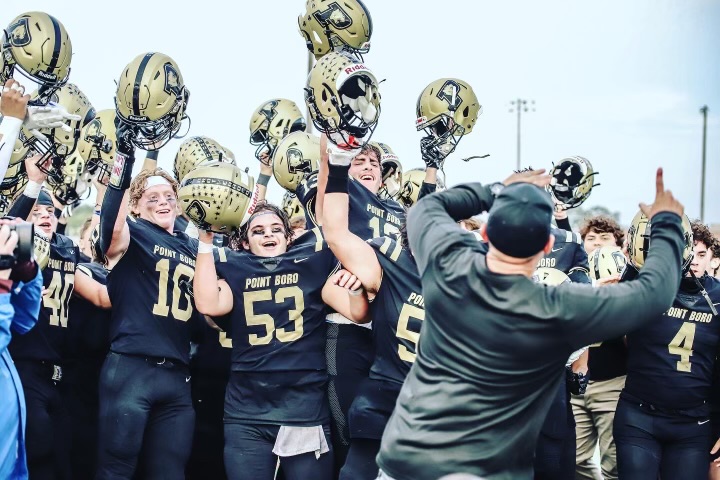Phil Martelli Denies Player Waiver To Transfer
http://espn.go.com/blog/collegebasketballnation/post/_/id/42525/what-is-phil-martelli-doing
It’s unsettling that this needs to happen at all, really, that players don’t have anywhere near the same freedom (never mind the money) and personal efficacy their coaches possess. But in most cases, coaches realize that denying a transfer request is (a) the wrong thing to do morally, (b) horrible for recruiting and perception or (c) some combination of the two.
Former Saint Joseph’s basketball player Todd O’Brien went public Monday on SI.com with his first-person account of his attempt to transfer from Saint Joe’s to UAB this season. O’Brien graduated from the Philadelphia school in the summer and sought a graduate student transfer exception release from the NCAA. O’Brien’s plan was to head to UAB, play one more year of basketball at the school and begin his graduate work in UAB’s public administration program, a field that O’Brien says aligned with his focus of study and internship work before the transfer.
Naturally, O’Brien had to tell his current coach, Martelli, about the decision. According to his account, that’s when things got strange:
I met with Coach Martelli to inform him that I would not be returning. I had hoped he would be understanding; just a few weeks before, we had stood next to each other at graduation as my parents snapped photo. Unfortunately, he did not take it well. After calling me a few choice words, he informed me that he would make some calls so that I would be dropped from my summer class and would no longer graduate. He also said that he was going to sue me. When he asked if I still planned on leaving, I was at a loss for words. He calmed down a bit and said we should think this over then meet again in a few days. I left his office angry and worried he would make me drop the classes.
A few days later I again met with Coach Martelli. This time I stopped by athletic director Don DiJulia’s office beforehand to inform him of my decision. I told him I would be applying to grad schools elsewhere. He was very nice and understanding. He wished me the best of luck and said to keep in touch. Relieved that Mr. DiJulia had taken the news well, I went to Coach Martelli’s office. I told him that my mind had not changed, and that I planned on enrolling in grad school elsewhere. I recall his words vividly: “Regardless of what the rule is I’ll never release you. If you’re not playing basketball at St. Joe’s next year, you won’t be playing anywhere.”
When O’Brien finally settled on UAB (which came after his initial decision to transfer), the school was flummoxed when it found that Martelli and Saint Joe’s had objected to his eligibility this season on their release form.
Confused, UAB contacted Saint Joseph’s to ask why they had done this. Turns out, Coach Martelli was adamant to the athletic director that I should not be allowed to play because I had “wronged him.”
So, yeah. O’Brien is stuck in NCAA legal limbo. Martelli still hasn’t released him. And for his trouble, he appears in the pages of Sports Illustrated looking petty, vindictive and monstrously out of touch.
Of course, there are two sides to every story. What’s Saint Joe’s side?
Nothing, actually. The school released a statement Monday, one that hid behind the NCAA’s waiver decision and said the school “considers the matter closed.” The reaction to this statement was not positive. (SI’s Seth Davis called it “pathetic,” to name one example.) In the meantime, our Andy Katz spoke with O’Brien’s attorney, Donald Jackson, who said that Saint Joe’s could reopen the release case and get the NCAA to grant O’Brien’s eligibility within hours. Katz attempted to contact Martelli, as did others from ESPN.com. Saint Joe’s athletic director Don DiJulia — with whom O’Brien recounted a positive conversation — declined to comment.
There are two sides to every story, unless one side refuses to give it, as Martelli and DiJulia have here. The immediate impulse, then, is to assume their side of the story is suspect. If there isn’t some major chunk of information left undiscussed, and if O’Brien’s account is accurate, Martelli is merely lashing out. He’s making a personal point — and a self-destructive one at that.
Because here’s the thing: O’Brien (no disrespect, Todd) is not a great college basketball player. He played 7.2 minutes on an 11-22 team last season. He would not be playing much more for the Hawks this season, especially given the emergence of sophomore forward C.J. Aiken, who has provided solid post work in Saint Joe’s 8-3 start to 2011-12. It’s not like O’Brien’s transfer cost Saint Joe’s a chance to be competitive. O’Brien didn’t transfer to a school in the same league or the same city. He transferred rather harmlessly and with minimal impact.
In a normal transfer situation, a coach does a quick cost-benefit analysis and realizes that, yes, although he technically can prevent a player from transferring from his program, he should not exercise that ability. For one, it’s wrong. Two, it’s bad publicity. Three, is the kid that good anyway? Four, it’s a headache — if a player doesn’t want to be on your team, why would you want him? Why keep a kid against his will? How does that help your team?
So, usually, the coach does the math and quickly says, “Hey, sure, go ahead, transfer. We wish Player X the best of luck in all his endeavors,” etc. Maybe he’ll append a restriction or two, like saying the player can’t transfer to a team within his own league or he can’t go play for an in-state rival. Or whatever.
You can have murky philosophical opinions on the transfer rules. I know I do. But in practice, these things usually work out.
Not for O’Brien, not for Martelli, not for Saint Joe’s. And it just doesn’t make any sense. Why is Martelli preventing a former benchwarmer from going where he wants to go with his final year of college basketball eligibility? He didn’t really think it would just go away, did he? That O’Brien would just happily sit on UAB’s bench all season without a peep?
If he did, he vastly underestimated O’Brien. If he didn’t, he was apparently willing to take the risk that this would become public and that he would get, to use the sports writer parlance, “crushed,” which is pretty much exactly what’s happened since O’Brien’s account was published Monday. With no response, let alone a competing version of events from Martelli or the school, we’re left to assume O’Brien’s story is true. Martelli, for his part, appears to be hiding.
Why? For what? It’s Todd O’Brien! It’s a graduate transfer exception! You’re 8-3! You just beat Creighton and Villanova! What on Earth are you doing?!
The only explanation, based on what we know, is that the Saint Joe’s coach holds the mother of all grudges. Otherwise, your guess is as good as mine. Or, for that matter, Todd O’Brien’s.







